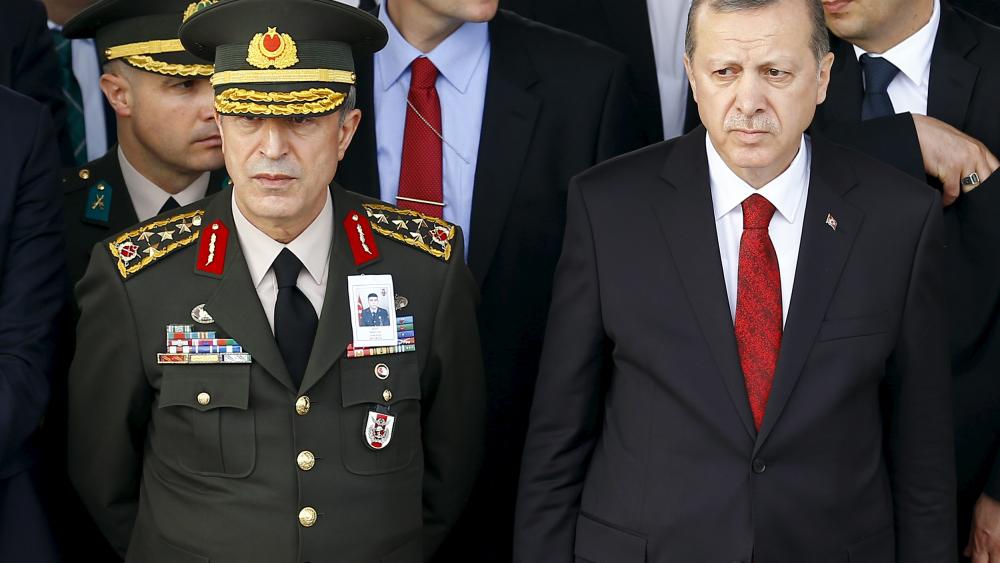On the night of July 15th 2016, Turkish Military Forces moved swiftly in the streets of both Ankara and Istanbul. What appeared to be a security operation slowly took the shape of a coup d’état as military units occupied key locations in the country’s two largest cities. Despite a history of successful coups by the Turkish military, this coup started to fail as soon as it began. Revolutionary units suffered from a lack of leadership and their seizure of critical infrastructure in and around the capital was haphazard at best. Most importantly, the coup failed to make any credible attempt to kill or capture President Recep Tayyip Erdogan, the strongman leader of the incumbent Justice and Development Party (AKP) and the lynchpin between success and failure. Despite dramatic scenes from around the country, loyalist forces were firmly back in control before sunrise and were pointing the finger of blame at a shadowy organization known by its Turkish acronym, FETÖ, the Fethullah Gülen Organization.
Erdogan’s apparent success emboldened him the following day. His security services had performed brilliantly. They were one step ahead of the coup at every turn and were already rounding up FETÖ members within the state. Despite 300 dead and more than 2100 wounded, Erdogan and AKP appeared to be in a strengthening political position and were consolidating authoritarian power across all the institutions of the Turkish government. Still, the situation remained complicated. The remaining military leadership did not have an amiable relationship with the AKP, a party whose Islamic leanings conflict with the military’s secular legacy. Erdogan the authoritarian will have to reconcile that relationship with the AKP’s devout Islamic voting base; a base that once looked to Fethullah Gülen for direction.
Stroke & Counterstroke
In 2002, Erdogan’s AKP swept the Turkish general election with an overwhelming majority. The victory was a shocking turn of events in a nation that traditionally embraced a secular order underpinned by vast military power. The secret of AKP’s success at the time was social mobilization in support of a more politically Islamic Turkey. In this endeavor, Erdogan received direct support from FETÖ media outlets and schools that enjoyed great popularity amongst Islamic voters. Though for years Erdogan benefitted politically from the relationship with FETÖ, it pitted him against the secular nationalist leadership of the military. Inspired by the secular legacy of Mustafa Kemal Ataturk, the “Kemalists” in the military were growing alarmed at the Islamization of Turkish politics led by the AKP and guided by Fethullah Gülen. Pressure mounted until 2012 when judges associated with Gülen convicted 322 military officers of plotting to overthrow the government. The failure of the plot, known locally as “Sledgehammer”, defanged the military and set its Kemalist leadership against Gülen for what the military believed was a political move against the legacy of Ataturk.

The relationship between the AKP and FETÖ dissolved shortly thereafter when Gülen criticized Erdogan over the handling of the 2013 Gezi Park protests; upheavals that supported freedom of the press while maligning the government for encroaching on Turkish secularism. Accusing Gülenists of running a parallel state, Erdogan expelled them from law enforcement and the judiciary. In turn, Gülen’s religiously-minded supporters viewed Erodgan’s actions as an attack on their organization and the Islamic path they sought for Turkey. Over time, as Gülen’s opposition to Erdogan’s growing power intensified, the Kemalists began to sense an opportunity to take their revenge.
Turkey Unveiled
After years of souring relations between AKP and the Gülenists, the National Security Council declared FETÖ a threat to national security in 2014; a partial victory for the Kemalists but one that did not regain them control of the military or the government. That would not happen until 2016 when Gülenists within the military sought the help of the remaining Kemalists to overthrow Erdogan and AKP. The move was not without merit. The Kemalists had already suffered at the hands of AKP and were increasingly uncomfortable with the ongoing erosion of secularism and consolidation of power by Erdogan but they calculated revenge was ultimately more beneficial than collaboration. Initially pledging their support for the coup, the Kemalists stepped aside at a critical moment, betrayed FETÖ, and declared themselves in full support of Erdogan’s government. The subsequent failure we all witnessed on television was therefore less of a success for Erdogan than it was a victory for the Kemalists. In one night, they regained control of the military and drove the wedge between AKP and its Islamic base a little deeper.
Recognizing the new reality, Erdogan changed his stripes from a one-time supporter of political Islam to an authoritarian nationalist; a position supported (for now) by the military but rejected by AKP’s traditional base. How long he can maintain this tenuous political charade will depend on his success in wielding the tools of authoritarianism; specifically, his relationship with the military and suppression of freedom of the press. The simultaneous and often conflicting vilification of FETÖ, the Kurds, and Daesh, continue to fuel police and military operations like Operation Olive Branch in Syria that serve to expand Erdogan’s power and keep his Kemalist allies busy.
Despite the outward appearance, Erdogan and AKP are without a political anchor and dangerously dependent upon the Kemalists they once betrayed. While western governments and media continue to operate on the assumption of Erdogan’s strength since the failed coup, it is likely the real master of puppets is wearing a military uniform, and he has yet to pull all his available strings.
 Nuno Felix is a former non-commissioned officer with Portuguese Army Special Operations Forces. He is a sniper and special reconnaissance expert and is currently working as a consultant to top executives in the financial sector.
Nuno Felix is a former non-commissioned officer with Portuguese Army Special Operations Forces. He is a sniper and special reconnaissance expert and is currently working as a consultant to top executives in the financial sector.


Your post is very informative, it includes good information about Turkey, thank you.
Thank you.